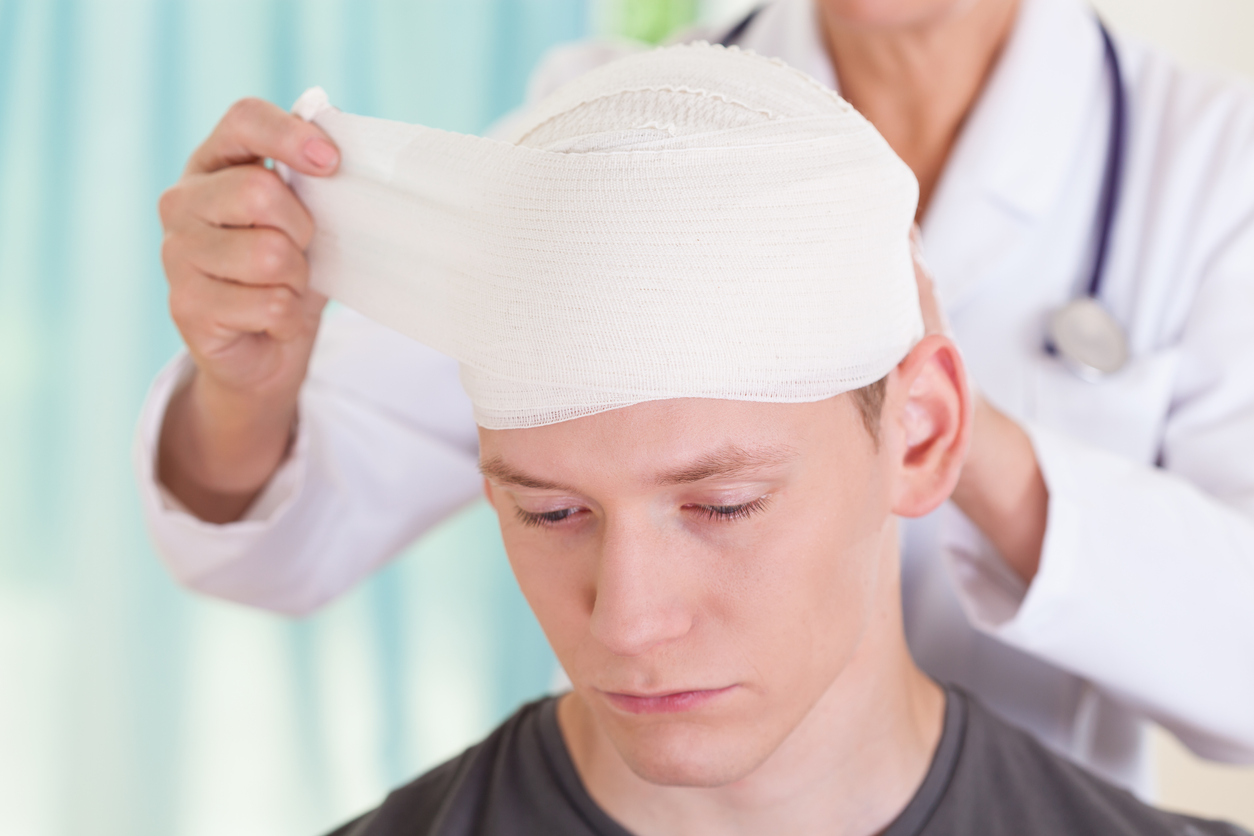Stephen Hasner | Personal Injury | November 18, 2020

Coup-contrecoup is a French term that describes a type of brain injury. “Coup” means “blow” and “contrecoup” means “counterblow.” These injuries can occur in various areas of the brain and are considered to be a type of traumatic brain injury (TBI). Traumatic brain injuries are a leading cause of disability and death in adults in the United States.
This type of injury can occur in car accidents and unfortunately, are not always immediately diagnosed. They occur either from impact or from sudden, violent movement in one direction and then in another, such as a severe whiplash in a car accident. They can occur in young children when they are shaken back and forth. In that context, the injury causes what we know as shaken-baby syndrome.
Within this category of brain injuries are three distinct subcategories. All three are considered serious brain injuries that can be fatal, or which may affect a person for the rest of their lives.
Coup-contrecoup injuries are often the result of blunt force trauma to the head. During a car accident, tremendous forces move a person’s body within the seat. This is true even with seatbelts and airbags deployed.
Sometimes in a vehicular accident, a person’s head comes into contact with the dashboard, steering column, or sides of the vehicle. This can cause blunt force trauma to the head. But these types of injuries can occur even without direct impact to the head. When the force of the impact is sufficient, the force of the head moving in one direction and then snapping back can move the brain within the skull enough to cause injury.
Coup
A “coup” injury occurs directly under the site where the head receives the blunt force trauma. Most often, in car accidents, this occurs at the frontal lobe (forehead) or the temples. The outside force hits the head and the brain directly underneath receives the traumatic injury. This produces a lesion directly underneath the site of impact.
This is often more easily diagnosed. When there is bruising or trauma to the outside tissues, a healthcare provider is more apt to check for a corresponding “coup” injury directly underneath the outside trauma.
Contrecoup
In a contrecoup injury, the area directly opposite the location of the application of force is the area of the brain that is injured. The direct force to the “coup” area causes the brain to slam into the opposite side of the skull, causing damage, or a lesion, to the brain tissue directly opposite. This injury is easier for a health care provider to miss initially.
Coup-Contrecoup
In this injury, both the “coup” area of the brain and the “contrecoup” area of the brain are injured. In addition to producing lesions, the impact can cause the lining of the brain to tear, causing bleeding, bruising, or swelling.
Symptoms and Diagnosis
The injury causes a contusion or intracerebral hemorrhage in the brain. This can cause the brain-bleed, brain swelling, or cause problems with the cerebrospinal fluid flow around the brain. This can be diagnosed either by a CT scan or MRI.
There are a myriad of symptoms associated with the injuries. An injured patient may present as confused or disoriented. Their speech may be slurred. A patient may have weakness or the inability to move one side of the body. Some patients have seizures. Others experience memory loss, sensitivity to light, or ringing in the ears. In its milder form, this type of injury is similar to a concussion.
Coup-Contrecoup Brain Injury Treatments
The treatment used will depend on the severity of the injury.
In cases of severe pressure inside the skull, neurosurgical intervention is required to reduce the pressure. All patients must be closely monitored for increased bleeding and pressure. Treatments are centered around reducing further damage to the brain.
The coup-contrecoup injuries to the brain are usually irreversible. Therefore, early diagnosis, monitoring, and treatment are critical and can prevent further brain damage.
Rehabilitation, Retraining, and Additional Care
Traumatic brain injuries can cause death. Even when a patient has a milder traumatic brain injury, that patient may have permanent disabilities as a result. This may mean a permanent loss of income, continued rehabilitative work, to help maintain function, retraining to accomplish the tasks of daily living, and continued reliance on others throughout the patient’s lifetime. This can lead to a lifetime of increased medical costs.
In all cases, when this injury is a result of a car accident, the victim and the victim’s family will need help negotiating the changes that will occur over time. If the accident occurred as a result of another’s negligence, an experienced personal injury attorney can help the patient with that portion of the hurdles they will face. No one should have to negotiate this path alone.
Contact the Atlanta Personal Injury Lawyers at Hasner Law PC For Help
For more information, please contact the Atlanta personal injury law firm of Hasner Law P.C. at our nearest location to schedule a free consultation today.
We serve in Fulton County, Chatham County, and its surrounding areas:
Hasner Law PC – Atlanta Law Office
2839 Paces Ferry Rd SE #1050
Atlanta, GA 30339
(678) 888-4878
Hasner Law PC – Savannah Law Office
221 W York St
Savannah, GA 31401
(912) 234-2334


